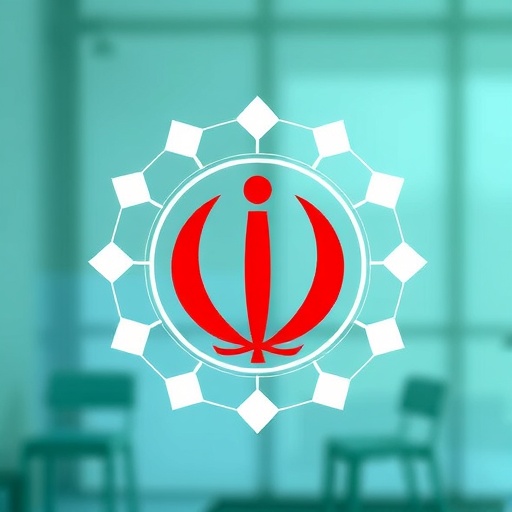In a rapidly globalizing world, the necessity for higher education institutions to achieve international accreditation has become paramount. This is particularly true for medical schools. Such accreditation not only enhances the quality of education provided but also ensures that the curriculum adheres to internationally recognized standards. A recent qualitative analysis conducted by Hashjin, Shabani, and Tahmasebi sheds light on the intricate challenges faced by Iranian universities of medical sciences as they navigate the complex landscape of obtaining international accreditation.
The journey toward attaining international recognition can often be daunting. The analysis reveals a spectrum of obstacles that Iranian institutions encounter, from bureaucratic challenges to cultural constraints that hinder compliance with international standards. Among the most pressing issues identified are inadequacies in institutional infrastructure, which can stymie efforts to align educational practices with those expected by accrediting bodies. Without proper facilities and resources, universities find it exceedingly difficult to initiate and sustain improvements necessary for accreditation.
Moreover, the researchers emphasize the importance of a cohesive strategy focused on creating robust academic frameworks that support accreditation goals. This entails fostering collaborations between various stakeholders, including policymakers, faculty members, and relevant international organizations, to develop a comprehensive understanding of what is required for international accreditation. Communication and collaboration are pivotal in addressing misunderstandings and providing clarity on expectations from accrediting bodies.
One significant finding of the study is the necessity for a cultural shift within the educational institutions themselves. Many faculties and administrators possess a limited understanding of the key factors that contribute to successful international accreditation. This gap in knowledge often arises from a traditional approach to education that does not prioritize continuous improvement or external evaluations. By cultivating an environment that values transparency and welcomes constructive feedback from global peers, these institutions may overcome entrenched mindsets.
Additionally, the study highlights the role of faculty preparedness in securing international accreditation. The researchers assert that educating faculty members about global standards and the significance of continual professional development is crucial. When faculty members are equipped with the necessary skills and knowledge, they can more effectively contribute to the creation and implementation of curricula that meet international expectations. This creates a ripple effect, enhancing the overall quality of education delivered to students.
On the student front, encouraging a mindset that prioritizes global competencies is equally vital. Students should be instilled with a sense of ownership over their learning, actively seeking knowledge and experiences that align with international standards. Curricula must be designed to cultivate global citizenship, ensuring that graduates are not only knowledgeable in their fields but also adaptable and culturally competent in diverse settings.
The research also outlines the significance of adopting evidence-based practices in the accreditation process. By harnessing data on educational outcomes, institutions can identify specific areas for improvement and tailor interventions accordingly. This data-driven approach can bolster their case when seeking accreditation by providing concrete evidence of progress and effectiveness in educational delivery.
Furthermore, the study posits that fostering partnerships with accredited international institutions can serve as a catalyst for improvement. Exposure to global best practices not only facilitates knowledge transfer but also enables local institutions to benchmark their performance against established standards. Collaborative ventures can yield innovative solutions to existing challenges, enhancing the overall educational landscape.
In revisiting governance structures, the researchers suggest that universities need to adopt more flexible governance models that can quickly adapt to changing demands imposed by accrediting agencies. A rigid structure might undermine the institution’s ability to respond to feedback efficiently. By implementing agile governance frameworks, universities can enhance their adaptability and responsiveness, making significant strides toward accreditation.
Crucially, the funding landscape also plays a significant role in the accreditation journey. The authors note that securing adequate funding is often a major hurdle for many institutions aiming for international accreditation. Without sufficient financial resources, initiatives designed to enhance educational quality may falter. Therefore, they advocate for strategic investments in educational technology, faculty training, and infrastructure developments that align with global standards.
As the analysis draws to a close, the researchers emphasize the importance of perseverance and long-term commitment. Securing international accreditation is not merely a check-box exercise; it requires sustained dedication and continuous improvement. Institutions must embrace a cyclical process of evaluation, adjustment, and reassessment to remain aligned with international standards.
In conclusion, the qualitative analysis conducted by Hashjin and colleagues illuminates the multifaceted challenges and potential solutions for Iranian universities as they pursue international accreditation. By addressing infrastructural weaknesses, fostering cultural shifts, investing in faculty development, and embracing evidence-based practices, these institutions can enhance their educational offerings and secure the recognition they seek. The path to accreditation may be arduous, but with strategic planning and concerted effort, the rewards—in terms of educational quality and recognition—are well worth it.
Subject of Research: Challenges and solutions in international accreditation for Iranian universities of medical sciences.
Article Title: International accreditation in Iranian universities of medical sciences: a qualitative analysis of challenges and solutions.
Article References:
Hashjin, A.A., Shabani, E., Tahmasebi, A. et al. International accreditation in Iranian universities of medical sciences: a qualitative analysis of challenges and solutions. BMC Med Educ 25, 1447 (2025). https://doi.org/10.1186/s12909-025-08031-8
Image Credits: AI Generated
DOI: 10.1186/s12909-025-08031-8
Keywords: international accreditation, higher education, medical sciences, Iran, challenges, solutions, qualitative analysis.




